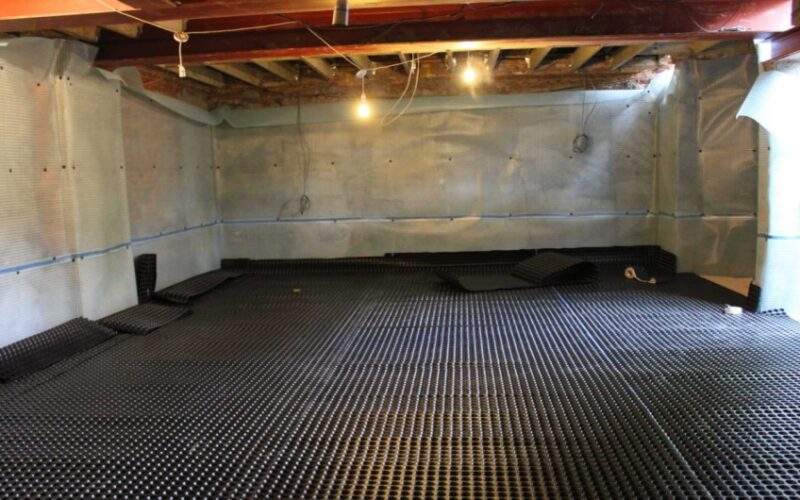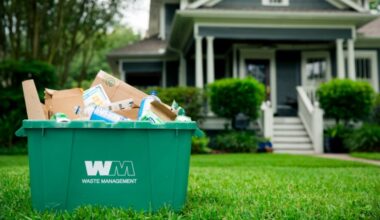Waterproofing your basement is one of the procedures that can be classified as directions aimed at protecting the exterior look and durability of the home. If the water problems are left unresolved, they breed mold and create the formation of cracks on the foundation and, at some point, on your home structure. Thus, some measures can reduce the likelihood of these conditions and help to protect the basement and the foundation. Whether you are in the planning stage of a new building or when dealing with a specific issue, there is a need to understand the strategies for waterproofing your basement and its benefits.
Understanding the Importance of Basement Waterproofing
When water penetrates your basement, you may be faced with problems of different magnitudes from small to huge. It can get through walls, floors, and even the foundations of buildings, encouraging the growth of mold and weakening the structures. It might jeopardize the security of your home and, in the long run, cause expensive repairs.
Assessing the Constitution of Your Basement
Prior to waterproofing, there are some points to consider regarding the general condition of the basement. It entails establishing:
- Sign of any leakage
- Indications of the development of cracks or
- An evident that water has found its way into the building.
Thus, you will be able to identify the particular area that requires waterproofing and which technique is suitable for applying it.
-
Inspect Walls and Floors
Checking for cracks and other signs of dampness on the walls and floor of the basement. Such may be indications of water seepage that may need some touch-up to be administered.
-
Monitor Humidity Levels
The best approach to getting the nearest approximation of the amount of humidity in the basement is to use a hygrometer. High humidity always leads to the existence or presence of too much moisture and thus always points to water problems.
-
Look for Mold and Mildew
Mold and mildew formation are signs of water issues related to construction and general contracting. Rinsing anything that smells slightly moldy or has actual mold growth with water will remove the mold and address the source of the moisture.
Choosing the Right Waterproofing Method
The method to be used depends on such matters as the criticality of the water problem, the type of foundation anticipated to be used, and cost concerns. Here are some common waterproofing techniques:
-
Interior Waterproofing
One type of basement waterproofing is a system for mitigating water that has already penetrated the basement. It normally entails putting up sump pumps and other interior drains coupled with vapor barriers.
-
Exterior Waterproofing
The idea behind exterior waterproofing is to keep water away from the basement. It encourages digging around the home foundation and using waterproof paints and seals in combination with drainages to effectively direct water away from the home.
-
Crack Injection
Crack injection is a viable repair process for fixing small cracks in a building’s basic walls. It involves making holes in the crack area to inject epoxy or polyurethane to prevent water penetration.
Implementing Preventive Measures
Besides waterproofing techniques, several precautions can be taken against water in basements. They can all go a long way towards preventing the structure from wetting and, in turn, the creation of conditions that allow mold to grow.
-
Proper Grading
Guarantee that the ground in the surrounding area of your home has a slight inclination away from the walls. A good grading system assists in ensuring that rainwater drains away from the basement and thus avoids seepage.
-
Clean Gutters and Downspouts
Remove yard waste and fallen leaves and dispose of any other debris because they hinder water from draining away from the side of your house.
-
Install Window Well Covers
If you have basement windows that are at or below ground level, get them well covered. These covers ensure that water does not pierce around the window or trickle into the basement part of your house.
Benefits of Professional Waterproofing Services
Engaging the services of a professional waterproofing contractor has several benefits. Due to their knowledge, experience, and resources, professionals know how and where to look at the problem and fix it.
-
Accurate Assessment
Waterproofing experts who are professionals in the field are in a much better position to survey your basement and advise on what is best to do.
-
Quality Materials
Experts carry out the repairs using good quality products and methods that afford long-term protection against leaking.
-
Peace of Mind
Hiring a professional alleviates the stress of doing the job correctly and ensures that one’s home is safe from water damage.
Maintaining Your Waterproofed Basement
Once waterproofing has been conducted in your basement, it is good to try to maintain it properly so you do not have to repeat the measures. You should also maintain your car often so you can consider certain problems that may come in the future and deal with them.
-
Regular Inspections
It is advisable to free some time and physically scan the basement. You must check for signs of water seepage, mold, or any structural issues that might be visible.
-
Maintain Drainage Systems
Make sure that you have the proper drainage around the house’s interior and outside. Items such as dried leaves should be removed, and the availability of any obstruction that may affect water flow should be assessed.
-
Monitor Humidity Levels
Monitor the water content in your basement regularly; if it is high, using a dehumidifier or other methods to dry the basement is essential.
Conclusion
Waterproofing your basement is an important aspect that can help enhance the healthiness of the home’s foundation and its structural longevity. Understanding the need for waterproofing, evaluating the state of the basement, selecting suitable approaches, and taking preventive measures will protect your house from the bottom up. Whether or not you do it yourself, taking preventive measures to protect your basement against water damage can prevent a great deal of headaches later on.


